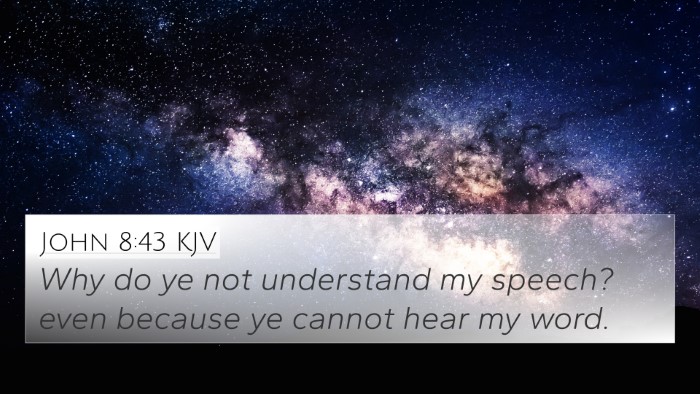Understanding Luke 22:67
Verse Context: Luke 22:67 states:
"If you are the Christ, tell us." He said to them, "If I tell you, you will not believe." (Luke 22:67, ESV)
This verse occurs during the trial of Jesus, where He is questioned about His identity as the Messiah. The leaders demand a direct answer, showcasing both their skepticism and the tension of the moment.
Summary of Insights from Commentaries
-
Matthew Henry:
Henry observes that this verse highlights the challenge of faith. The question posed by the leaders is not just one of curiosity; it reflects their resistance to believe the truth even when confronted with it. Henry notes that faith relies on divine revelation rather than mere intellectual assent.
-
Albert Barnes:
Barnes emphasizes the irony of the situation: those who are questioning Jesus are simultaneously witnessing miracles and teachings that should confirm His identity. He points out that Jesus' response implies that knowing the truth does not guarantee belief, and this creates a stark distinction between the questioning authorities and the faith of ordinary believers.
-
Adam Clarke:
Clarke provides a deeper theological reflection on the significance of the Messiah's identity. He explains that the essence of Jesus' mission is not merely to declare His title, but to embody it through His actions and sacrifice. Clarke suggests that this confrontation serves to fulfill prophecy and reveals the hardness of the leaders’ hearts.
Thematic Connections
Luke 22:67 serves as an important link to various themes across the Bible. Below are some key cross-references that illustrate these connections:
- Isaiah 53:3-5: Prophecy of the suffering servant, which Jesus fulfills.
- John 10:25: Jesus refers to His works as evidence of His identity.
- Matthew 26:63-64: A parallel account of Jesus' trial where He affirms that He is the Messiah.
- Acts 7:52: Stephen refers back to the theme of rejection of the prophets, highlighting historical patterns of disbelief.
- Luke 9:20: A previous declaration where Peter acknowledges Jesus as "The Christ of God."
- Mark 14:61-62: Similar confrontation before the Jewish council, emphasizing the identity of Jesus.
- 1 John 5:1: Believing that Jesus is the Christ is foundational to Christian faith.
Analysis of Inter-Biblical Dialogue
This verse draws a line of conversation through Scripture about recognition and belief in Jesus' identity:
- In John 1:11, it states, "He came to His own, and His own did not receive Him," thus contextualizing the disbelief.
- Romans 10:9-10 speaks to the importance of confessing and believing in Christ for salvation, contrasting the refusal of the leaders.
Tools for Bible Cross-Referencing
Understanding the connections between Bible verses can enrich your study and interpretation:
- Bible concordance: A valuable tool for finding words and themes.
- Bible cross-reference guide: Helps identify verses linked thematically or contextually.
- Cross-reference Bible study: Utilizes various translations to uncover deeper meanings.
Conclusion
Luke 22:67 stands as a powerful reminder of the questioning nature of faith and the necessity of a heart willing to believe. Through cross-referencing, the interconnectedness of Scripture reveals a fuller understanding of Jesus' mission and divine identity. As we engage in comparative Bible verse analysis, these threads of meaning provide richness to our spiritual journey.











